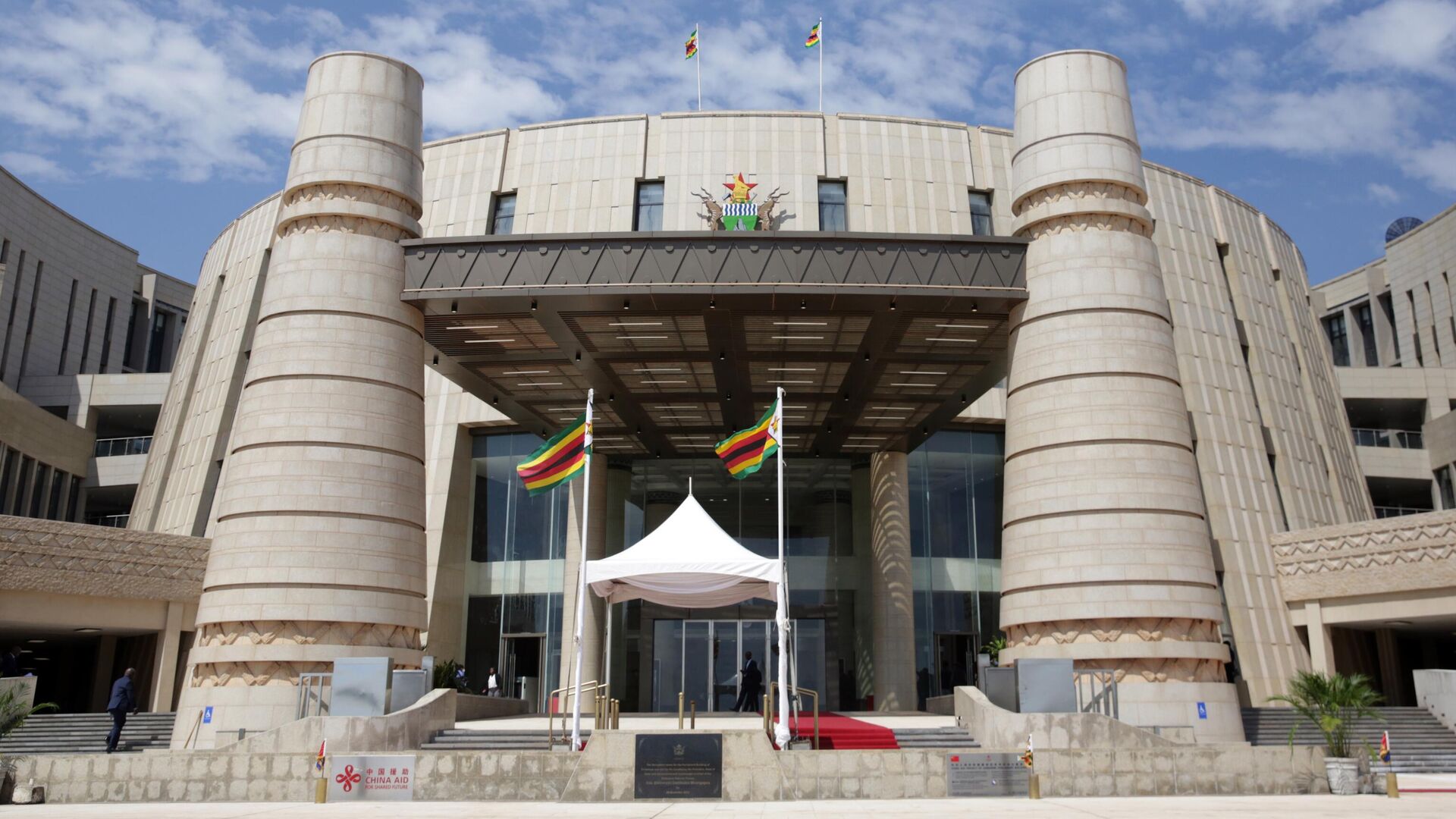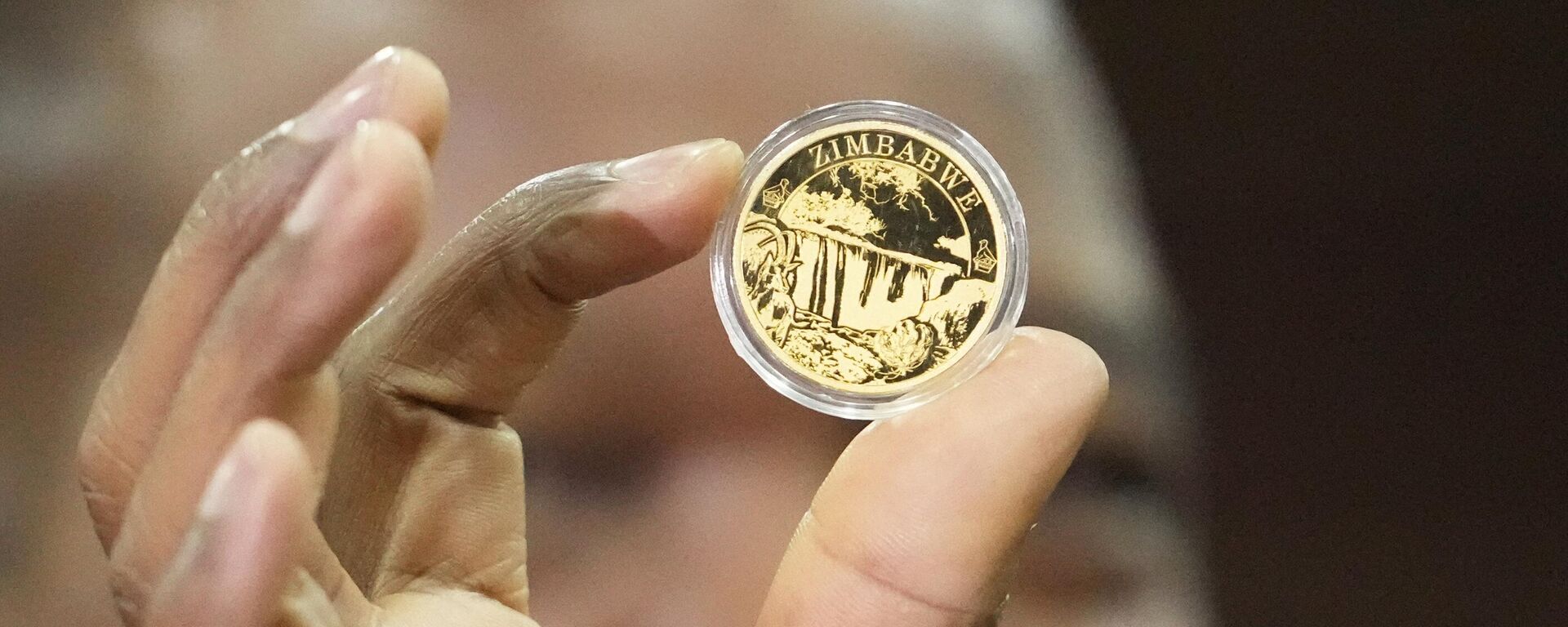https://en.sputniknews.africa/20230512/zimbabwe-moves-to-stabilize-local-currency-under-enormous-pressure-1059197229.html
Zimbabwe Moves to Stabilize Local Currency Under 'Enormous Pressure'
Zimbabwe Moves to Stabilize Local Currency Under 'Enormous Pressure'
Sputnik Africa
Earlier in late March, the nation's statistical agency said that the US dollar was the preferred unit for most transactions in the economy, saying 77 percent of transactions were in it.
2023-05-12T11:01+0200
2023-05-12T11:01+0200
2023-08-03T10:44+0200
sub-saharan africa
zimbabwe
finance
currency
southern africa
economy
https://cdn1.img.sputniknews.africa/img/07e7/05/0c/1059199443_0:322:3067:2047_1920x0_80_0_0_447c0aff35f38f7479641bc97276b785.jpg
Zimbabwe has taken steps to stabilize its currency, which is facing "enormous pressure" as domestic inflation is triggered by demand for US dollars as a safe haven, the country's Finance Minister Mthuli Ncube said in a statement.According to the finance chief, although, the Zimbabwean economy remains on a "firm growth path" with all key productive sectors registering positive growth, the country has witnessed renewed macroeconomic volatility, while leaning toward the US dollar as the currency of savings.Against this backdrop, the Zimbabwean Ministry of Finance and Economic Development announced a series of reforms that include a full retention of domestic foreign currency earnings and adoption of all external loans by Treasury, instead of the Reserve Bank of Zimbabwe.The government will require that fees and charges levied by its institutions be paid in Zimbabwean dollars to facilitate the use of local currency in domestic transactions, according to Ncube.To enhance the sourcing of basic goods, the government has abolished the requirement for import licenses, and all basic goods will come into the country without import duties and taxes. The Reserve Bank of Zimbabwe will raise interest rates on short-term loans to shore up the currency, Ncube said.The government has already introduced a series of measures to stem demand for the US greenback, including the introduction of gold-backed digital tokens earlier this week.Earlier, in late March, the Zimbabwean monetary policy committee reduced the world’s highest benchmark interest rate to 140% from 150%, which made the country's central bank the second in Africa, after Angola’s, to cut its key interest rate twice this year.The reduction came as the annual blended inflation rate, which tracks prices in US dollars and Zimbabwean dollars, fell to 87.6% in March, a nine-month low.
https://en.sputniknews.africa/20230510/a-game-changer-all-you-need-to-know-about-zimbabwes-gold-backed-digital-currency-1059150252.html
zimbabwe
southern africa
Sputnik Africa
feedback@sputniknews.com
+74956456601
MIA „Rossiya Segodnya“
2023
Maxim Grishenkin
https://cdn1.img.sputniknews.africa/img/07e7/0a/17/1063018107_0:0:1104:1103_100x100_80_0_0_03090c85a11f5d2e8a19cf1d989443c9.jpg
Maxim Grishenkin
https://cdn1.img.sputniknews.africa/img/07e7/0a/17/1063018107_0:0:1104:1103_100x100_80_0_0_03090c85a11f5d2e8a19cf1d989443c9.jpg
News
en_EN
Sputnik Africa
feedback@sputniknews.com
+74956456601
MIA „Rossiya Segodnya“
Sputnik Africa
feedback@sputniknews.com
+74956456601
MIA „Rossiya Segodnya“
Maxim Grishenkin
https://cdn1.img.sputniknews.africa/img/07e7/0a/17/1063018107_0:0:1104:1103_100x100_80_0_0_03090c85a11f5d2e8a19cf1d989443c9.jpg
zimbabwe economy, zimbabwe introduced measures to curb dollar, zimbabwe national currency, zimbabwe currency
zimbabwe economy, zimbabwe introduced measures to curb dollar, zimbabwe national currency, zimbabwe currency
Zimbabwe Moves to Stabilize Local Currency Under 'Enormous Pressure'
11:01 12.05.2023 (Updated: 10:44 03.08.2023) Back in late March, the Zimbabwe's statistical agency said that the US dollar was the preferred monetary unit for most transactions in the economy, saying that the greenback was used in 77% of transactions.
Zimbabwe has taken steps to stabilize its currency, which is facing "enormous pressure" as domestic inflation is triggered by demand for US dollars as a safe haven, the country's Finance Minister Mthuli Ncube said in a statement.
According to the finance chief, although, the Zimbabwean economy remains on a "firm growth path" with all key productive sectors registering positive growth, the country has witnessed renewed macroeconomic volatility, while leaning toward the US dollar as the currency of savings.
"This has put enormous pressure on the exchange rate as the skewed preferences have continued to increase the velocity of the Zimbabwe dollar," Ncube said. "This phenomenon has seen a growing USD cash economy and it is estimated that a large portion of domestic transactions are now being conducted in foreign currency."
Against this backdrop, the Zimbabwean Ministry of Finance and Economic Development announced a series of reforms that include a full retention of domestic foreign currency earnings and adoption of all external loans by Treasury, instead of the Reserve Bank of Zimbabwe.
The government will require that fees and charges levied by its institutions
be paid in Zimbabwean dollars to facilitate the use of local currency in domestic transactions, according to Ncube.
To enhance the sourcing of basic goods, the government has abolished the requirement for import licenses, and all basic goods will come into the country without import duties and taxes. The Reserve Bank of Zimbabwe will raise interest rates on short-term loans to shore up the currency, Ncube said.
"This will squeeze out speculative demand for Zimbabwe dollars and US dollars," the finance chief remarked.
The government
has already introduced a series of measures to stem demand for the US greenback, including the introduction of gold-backed digital tokens earlier this week.
Earlier, in late March, the Zimbabwean monetary policy committee reduced the world’s highest benchmark interest rate to 140% from 150%, which made the country's central bank the second in Africa, after Angola’s, to cut its key interest rate twice this year.
The reduction came as the annual blended inflation rate, which tracks prices in US dollars and Zimbabwean dollars, fell to 87.6% in March, a nine-month low.



